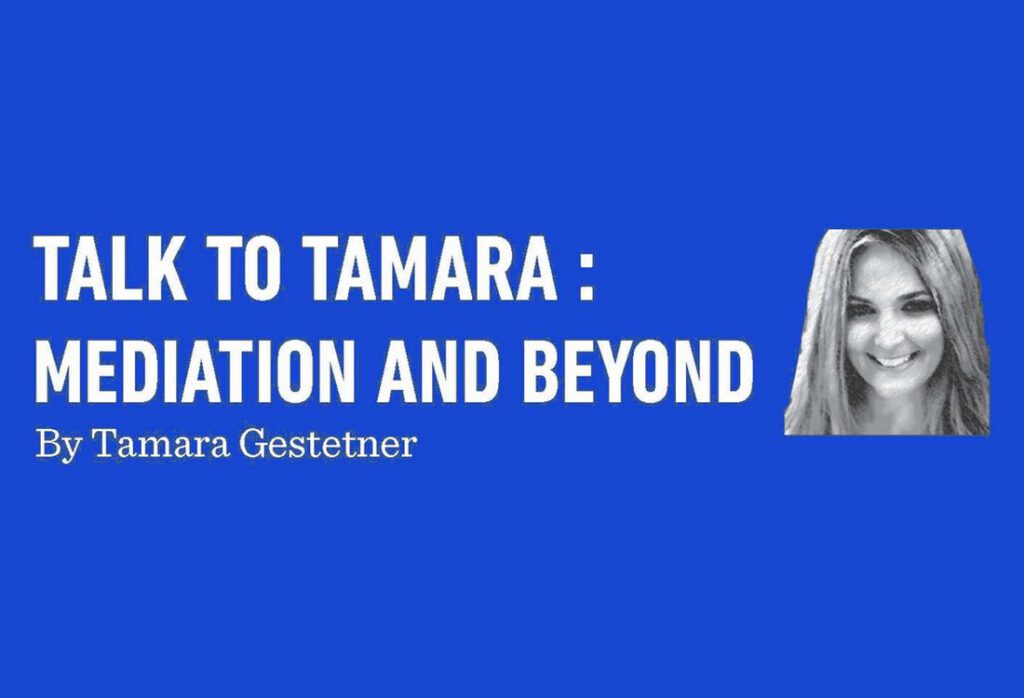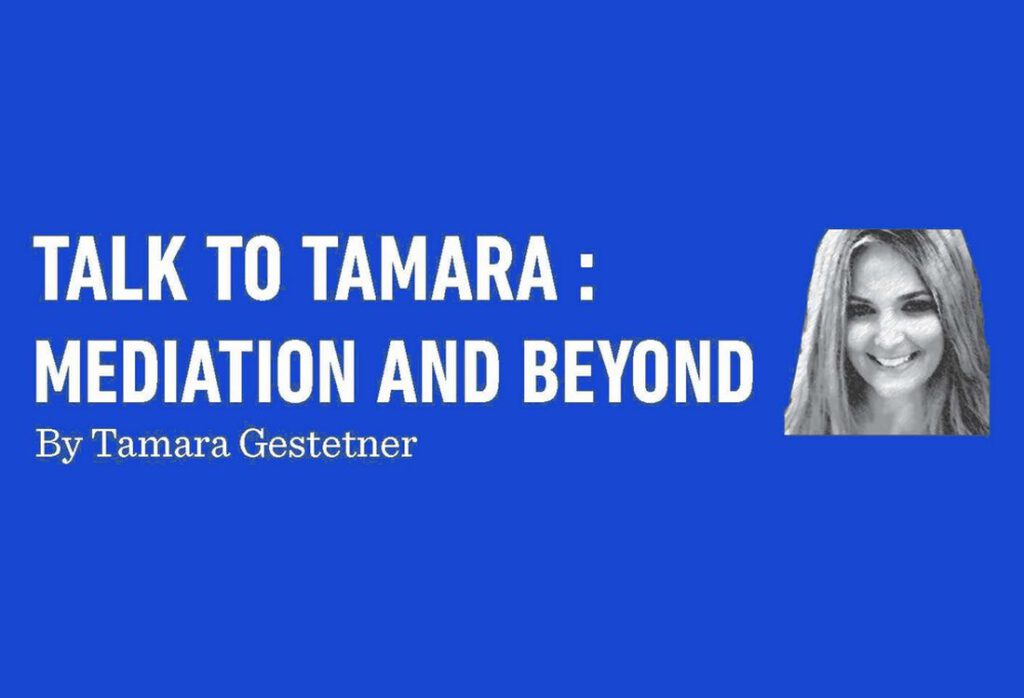Stuck In The Middle (And Kind Of Falling Apart)
There are moments in life when you feel pulled in different directions. And then there are weeks like this one when you’re not just pulled, you’re split open.
My in-laws, both in their 80s, flew in for the bris of their great-grandchild. My father, also in his late 70s, came too. He stayed with us for Shabbos. My married daughter was here, my toddler had back-to-back speech and OT sessions, and I was juggling work responsibilities, preparing meals, trying to be emotionally available, and just keeping everything moving.
I’ve been here before.
When my mother was sick, I was pregnant and trying to raise little kids while watching her fade in front of me. I was also in the early stages of building my therapy practice. I was taking clients, trying to establish a name for myself, responding to messages between pick-ups, sneaking in notes and billing late at night. I felt like I was on two parallel tracks, one that was growing and full of potential, and one that was crumbling under the weight of sadness and grief. I was building something while bracing for loss. There was no time to fall apart. There was just moving forward.
And now, years later, it’s still happening, just in a quieter, more chronic way. What’s been interesting is watching many of my friends now entering this stage for the first time. They’re beginning to notice their parents slowing down, juggling appointments, dealing with emotions they’ve never had to face before. They call me, they vent, they ask: “How do you do it?” And I get it, because I’ve been here before. For them, this is new. For me, this is familiar. And I’ll be honest, I’m tired.
My mother’s gone now and my father lives alone. So, every yom tov, every vacation, every long weekend comes with a mental checklist: Can we go? How will it work? Will he be alright?
This past Pesach we went away with my father, in-laws, my married daughter, the rest of the kids, and the toddler. I wouldn’t call it a vacation. It was a high-stakes juggling act of personalities, logistics, sensitivities, and generational needs. Everyone was grateful. Everyone contributed. But it still required a level of emotional multitasking that leaves you a little frayed at the end.
And then there was the van ride to the airport. We got stuck in traffic like I have never seen before, bumper to bumper for what seemed like hours. My toddler was crying almost the entire time. My father was getting anxious. My mother-in-law was clearly overwhelmed. The van felt like a pressure cooker. Everyone was unraveling, and I was sitting in the middle, trying to keep the peace, handing out snacks, rocking the car seat, whispering reassurances, and calculating how late we’d be. That moment summed up exactly what this stage of life feels like: you’re in the driver’s seat, but not really. You’re trying to keep everyone calm, keep things moving, and still make it to your gate in one piece.
Sometimes I find myself daydreaming about planning something without having to factor in anyone else’s logistics. Not because I don’t want them around, but because sometimes I crave the simplicity of just thinking about me. Not asking: Will he be alone? Will someone check in? How will he manage? Just planning freely. But then, of course, comes the guilt. Because we don’t know how long we have. Because we’ve already lost one parent. Because our time together is precious, and once it’s gone, we don’t get it back.
And that guilt is relentless.
I feel guilty I don’t visit my in-laws enough.
I feel guilty that my father might be alone for Shabbos.
I feel guilty that I want things to be easier.
I feel guilty that I want space.
I feel guilty that I can’t do it all with a smile.
I feel guilty that I’m still working, still growing, and trying to hold onto the parts of me that exist outside of caregiving.
It’s such a strange grief, this invisible, anticipatory kind. The grief of watching your parents slow down while your children are speeding up. Of watching your own identity blur somewhere between caretaking and carpools. Of doing all the right things while still feeling like you’re coming undone at the seams.
And yet, in the midst of all of it, life keeps moving. There are still deadlines to meet, clients to show up for, school forms to sign, and groceries to restock. No one’s handing out gold stars for this stage of life, but I sometimes think we deserve them. Not because we’re doing it perfectly, but because we haven’t given up.
Then there’s the family dynamic, which adds a whole other layer. With both my father and my in-laws, there’s always the unspoken question of who is doing more, who is more involved, and how that distribution affects the relationships. My in-laws don’t live nearby, so the day-to-day tends to fall on my sister-in-law who lives in Florida. With my father, none of us live close by, but my older sister often steps into the primary role. And my brother, being the only boy, steps in when there are things that only a man can do traditionally. And then there’s the part no one says out loud, but everyone feels: Who’s going to have them for yuntif? Who’s checking in more often? Who’s shouldering more of the weight? No one’s keeping score, but somehow, we’re all aware of the scoreboard. And that creates a quiet, complicated emotional backdrop that can color even the most well-intentioned plans.
There’s also the spiritual weight of it all. We’re taught that honoring our parents, kibud av v’eim, is one of the greatest mitzvot in the Torah. In fact, it precedes so many other commandments. That knowledge carries its own weight. My brother recently reminded me in the midst of a vent session that, “This is what gives you arichas yamim, long life.” He meant it sincerely. And I believe it. Deep down, I know that this kind of care, the quiet consistent kind, is sacred. But that doesn’t make it simple. That doesn’t mean it doesn’t cost something emotionally.
So, what do we do?
We name it. We stop pretending this is normal or easy. This stage isn’t just busy, it’s soul-stretching. It’s beautiful and brutal, sacred and exhausting.
We take back moments, tiny ones. We send a quick voice note to a friend. We take a solo drive with music playing. A walk. A journal. Something that reminds us we still exist as us.
We ask for help, even if it’s uncomfortable. We stop measuring our success by how much we can carry before we collapse.
We remember that doing the right thing doesn’t always feel good in the moment. Sometimes it feels like an obligation: exhausting and aching. But it’s still right. It’s still holy.
And most importantly, we remind ourselves that showing up, even imperfectly, is still showing up. That matters.
If you’re in this place too, stuck in the middle and trying to stay afloat, you’re not alone. You’re doing more than enough. And even if no one says it… I see you. n
Tamara Gestetner is a certified mediator, psychotherapist, and life and career coach based in Cedarhurst. She helps individuals and couples navigate relationships, career transitions, and life’s uncertainties with clarity and confidence. Through mediation and coaching, she guides clients in resolving conflicts, making tough decisions, and creating meaningful change. Tamara is now taking questions and would love to hear what’s on your mind—whether it’s about life, career, relationships, or anything in between. She can be reached at 646-239-5686 or via email at [email protected]. Please visit TamaraGestetner.com to learn more.












